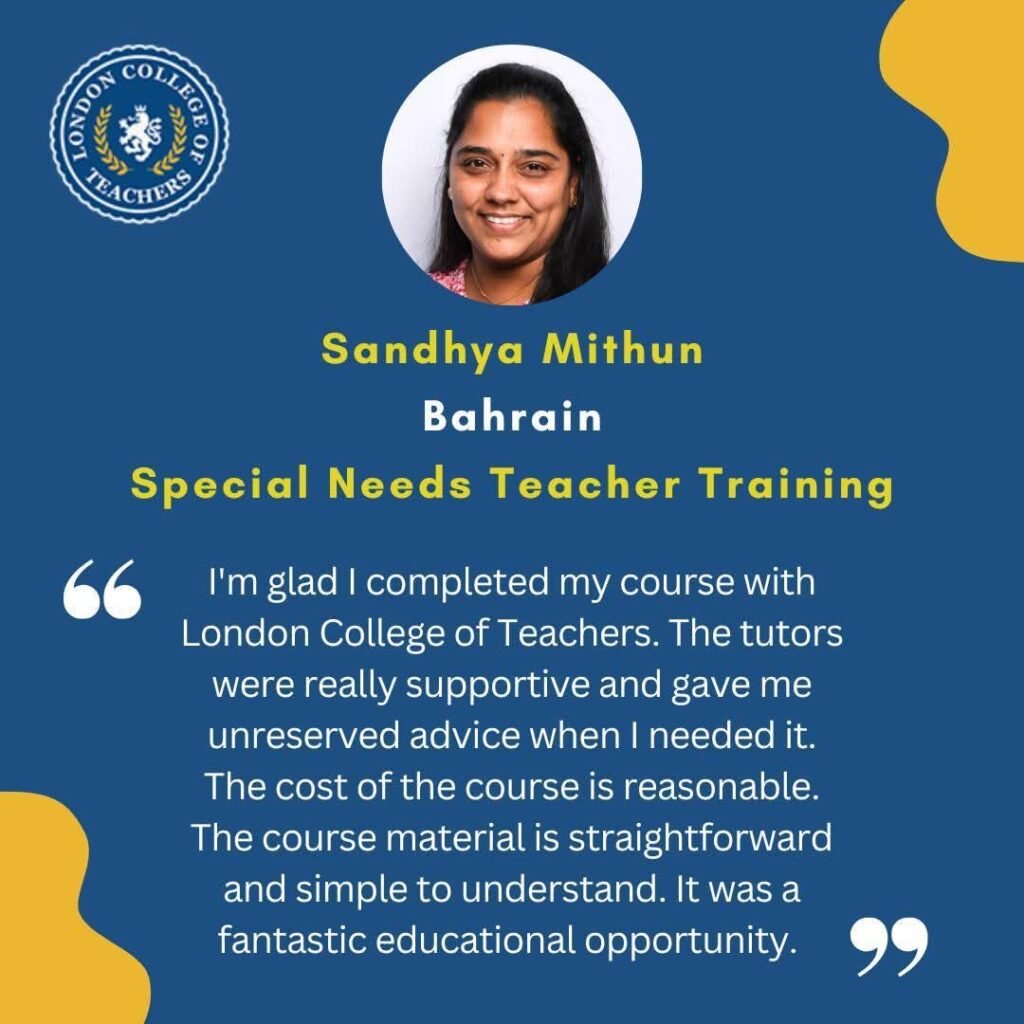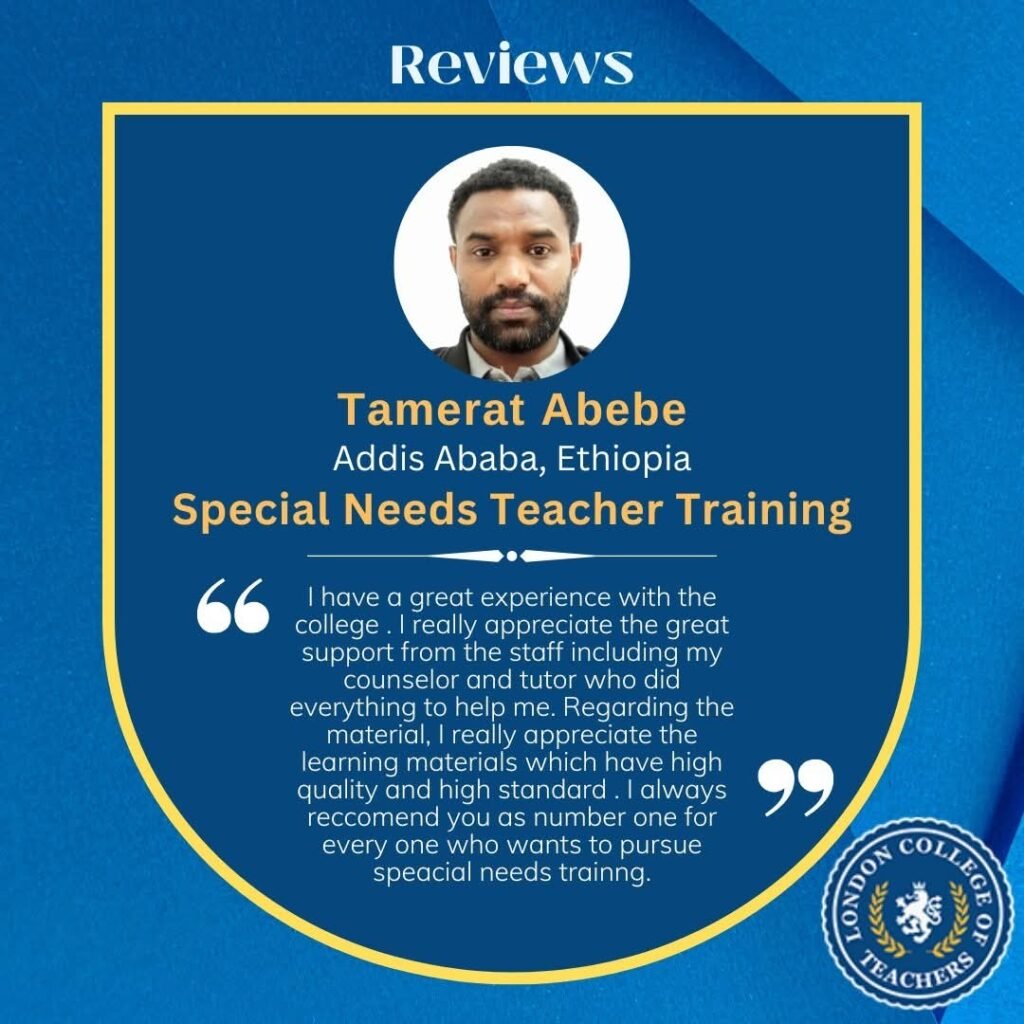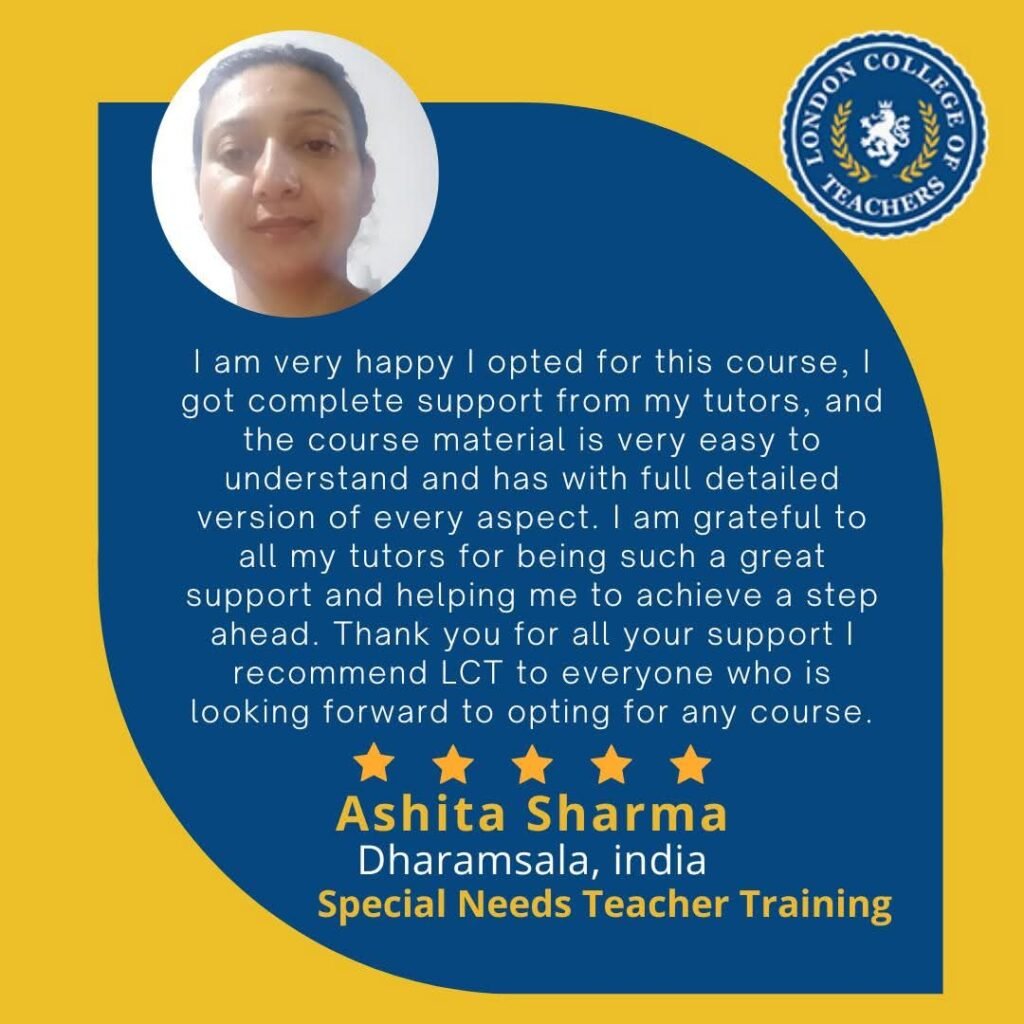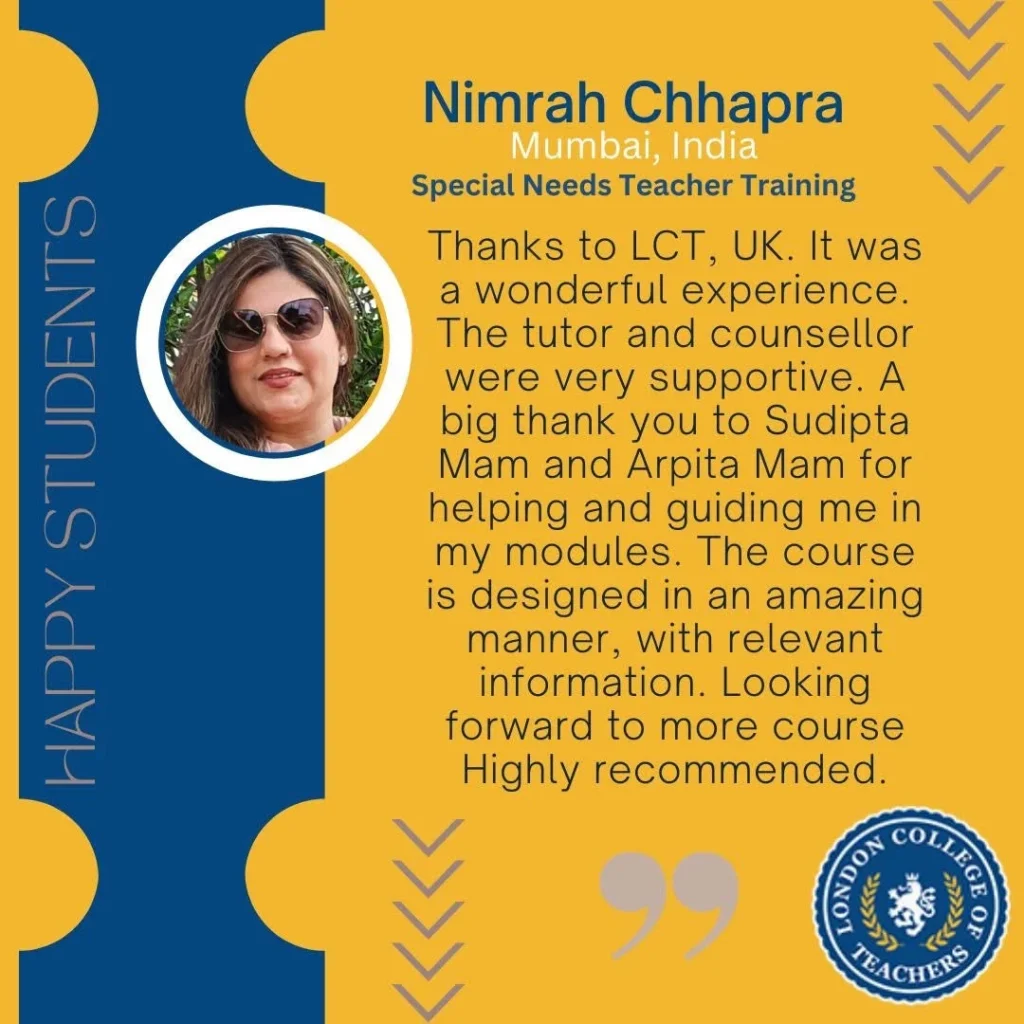Special Education Law & Ethics: Essential Online Courses for Teachers
In today’s evolving educational landscape, understanding Special Educational Needs (SEN) has become more than just an additional skill—it’s a professional and moral responsibility. Teachers are now required to navigate a complex web of laws, ethics, and inclusion frameworks to ensure that every learner, regardless of ability, receives equal opportunities to thrive.
Online special educational needs courses are bridging this gap by equipping educators with the legal knowledge, ethical sensitivity, and practical tools needed to create inclusive classrooms. Whether you’re an aspiring teacher or a seasoned educator looking to specialize in special education, these courses offer flexible, accredited, and globally recognized pathways to grow your expertise.
Understanding Special Educational Needs (SEN)
Special Educational Needs Course refer to learning difficulties or disabilities that make it harder for children to learn compared to others of the same age. These may include cognitive impairments, emotional or behavioural challenges, speech and communication issues, or physical disabilities.
A child with SEN might require personalized teaching methods, adaptive technologies, or emotional support to reach their potential. Educators who undertake special educational needs training gain a deep understanding of how to recognize, assess, and support these learners effectively.

Why Teachers Need to Study Special Education Law & Ethics
Every teacher who works with diverse learners must understand the legal framework and ethical responsibilities tied to special education. In the UK, laws like the Equality Act 2010 and the Children and Families Act 2014 protect the rights of students with disabilities.
By enrolling in special educational needs online courses, educators can learn about:
- Legal compliance: Understanding Individual Education Plans (IEPs), Education Health and Care (EHC) plans, and rights under inclusive education laws.
- Ethical considerations: Balancing fairness, confidentiality, and advocacy for learners with SEN.
- Practical application: Implementing inclusive classroom policies and supporting collaboration with parents and professionals.
Teachers trained in these areas not only meet institutional requirements but also develop a deeper sense of compassion and professionalism when dealing with sensitive learning challenges.

Benefits of Online Special Educational Needs Courses
Online learning has transformed teacher education, allowing professionals to balance their careers with continuous learning. Choosing an online special educational needs course offers several benefits:
- Flexibility and Accessibility
You can study at your own pace from anywhere in the world. This is especially beneficial for working teachers who need to fit coursework around their schedules.
- Professional Recognition
Graduates receive globally recognized certifications that enhance employability in schools, NGOs, and government education departments worldwide.
- Affordable Learning
Compared to in-person programs, online special educational needs training is cost-effective. LCT, for instance, offers tiered fee structures suitable for both aspiring teachers and experienced professionals seeking advanced credentials.

Career Opportunities After Completing SEN Training
Completing special educational needs courses opens multiple rewarding career paths. You can work in:
- Mainstream Schools: As an inclusion coordinator or SEN support teacher.
- Special Schools: Focusing on learners with complex needs.
- Counselling and Educational Psychology: Assisting in behaviour management and emotional well-being.
- NGOs and Child Welfare Organizations: Advocating for equal access to quality education.
- Policy and Administration: Contributing to inclusive education development at local or national levels.
Becoming an SEN specialist also positions you as a change-maker—someone who empowers students and supports parents and teachers to create nurturing learning environments.

How to Become a Special Education Teacher
Here’s a step-by-step path to becoming an SEN professional:
- Obtain a foundational teaching qualification – such as a Diploma or B.Ed.
- Enroll in a Special Educational Needs Course Online – this helps you specialize in areas like Autism Spectrum Disorders, ADHD management, or inclusive classroom practices.
- Complete supervised practical training – many online courses offer virtual internships or observation modules.
- Earn certification – recognized certification from institutions like London College of Teachers validates your qualification globally.
- Continue professional development – laws and best practices evolve, so staying updated through advanced SEN modules or seminars is crucial.

What Makes London College of Teachers (LCT) Different
While many institutions offer special needs training, LCT stands out for several reasons:
- Global Accreditation: Recognized by international education boards and recruitment agencies.
- Comprehensive Curriculum: Covers not just classroom strategies but also legal and ethical aspects.
- Diverse Course Options: From foundational SEN awareness programs to advanced postgraduate diplomas.
- Flexible Fee Structure: Affordable pricing for international and domestic students.
- Placement Assistance: LCT provides career support and connects certified teachers with schools worldwide.

Frequently Asked Questions (FAQs)
Q1. What are Special Educational Needs (SEN)?
SEN refers to learning or physical disabilities that require special teaching methods or additional support to help a child learn effectively.
Q2. Can I take Special Educational Needs Courses Online?
Yes. Reputable institutions like LCT offer flexible special educational needs online courses that you can complete from home.
Q3. Do I need prior teaching experience to enroll?
No. Many courses are open to beginners or aspiring educators. However, having classroom experience can enhance your understanding of practical concepts.
Q4. Are these certifications recognized internationally?
Yes. Graduates from LCT and similar accredited institutions receive globally accepted qualifications.
Q5. How long does it take to complete an SEN course online?
Depending on the level, it can take anywhere from 3 months for a certificate to 12 months for an advanced diploma.
Q6. What skills will I gain from SEN training?
You’ll develop skills in inclusive teaching, legal understanding, ethical classroom management, and individualized learning strategies.
Call to Action (CTA)
Apply Now for a Special Educational Needs Online Course with the London College of Teachers!
Make a lasting impact in children’s lives and champion inclusivity in education. Gain the legal insight, ethical foundation, and emotional intelligence you need to create classrooms where every child can thrive and shine.
Enroll today and become the change every learner deserves!
Conclusion
The journey to becoming a skilled SEN educator begins with understanding—not only how children learn differently but also how laws and ethics shape educational equality. Through online special educational needs courses, teachers gain the confidence and competence to create meaningful change.
By studying with institutions like LCT, educators open doors to fulfilling careers, lifelong learning, and, most importantly, the opportunity to champion inclusive education worldwide.


